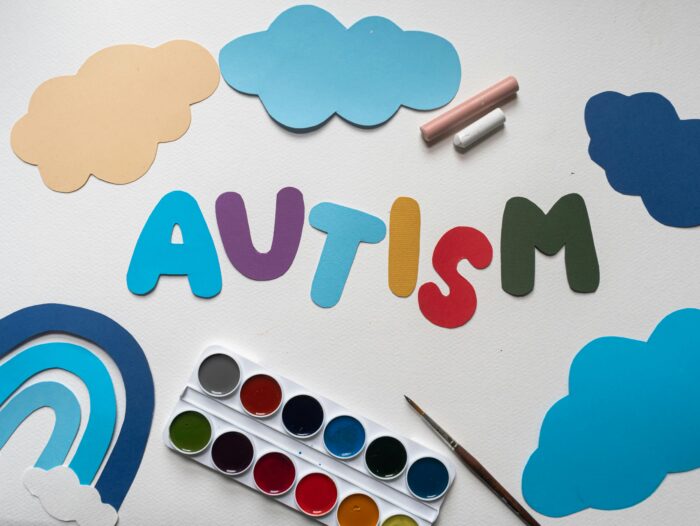
In search of the best ways to support our kids with Autism Spectrum Disorder, ABA therapy often comes up as a promising option. It’s got a solid track record for helping children communicate, learn, and engage more with their surroundings. But, as with any method, it’s got its share of debates too, which is why some parents may wonder—is ABA therapy harmful for autism?
This article will walk you through what ABA can do, address some of the concerns you might have heard, and explain why many families, maybe just like yours, find it beneficial.
Why Is ABA Therapy Considered Harmful for Autism?
The evolution of ABA, from its inception to its current state, has not been without debate. After discussing the efficacy and advantages of ABA therapy for children with ASD, let’s address the concerns and controversies surrounding it.
ABA Uses Aversive Methods and Punishment
The early chapters of ABA therapy are marked by the use of aversive methods, including severe forms such as electric shock therapy, to discourage unwanted behavior. These punishment-based practices have significantly contributed to ABA therapy’s controversial reputation.
The idea that such punitive measures were once used in behavioral interventions has alarmed parents and advocates, with some considering these methods as ABA therapy abuse.
However, it’s important to acknowledge how much ABA therapy has changed.
Nowadays, the emphasis is no longer on aversive methods and punitive measures. Instead, strategies are implemented to encourage and support your child’s learning. Rest assured that modern ABA practices prioritize your kid’s health.
To make sure about the whole process, you can prepare a list of detailed ABA questions for the therapy provider you have in mind.
ABA Causes Trauma and PTSD
Critics often claim that ABA therapy can be overwhelming for autistic kids, suggesting that it is too rigid and overly focused on compliance and performance. Some argue that it’s more about meeting expectations than nurturing the child.
This rigidity, critics argue, may be particularly challenging for nonverbal children or those who struggle to communicate. Moreover, there is worry that some ABA methods may provoke negative emotional repercussions and trauma, such as PTSD in autistic kids, anxiety, and depression.
A mismatch between the therapist, the child, and their family may contribute to less effective therapy, which is why it’s important to choose your therapist wisely. If things still don’t work out after changing therapists, it might be a good idea to research alternatives to ABA therapy such as CBT (cognitive behavioral therapy), or DBT (dialectical behavior therapy), among others.
Nonetheless, today’s sessions are intended to engage your child in a warm, supportive environment where learning is as enjoyable as playing. Professionals are trained to assess your child’s needs and adapt contemporary ABA therapy techniques to make them feel safe, valued, and motivated.
ABA Wants to “Normalize” Autistic Kids
Another argument for why ABA therapy is bad is that it aims to remove the autistic child’s uniqueness in order to make them appear “normal” by societal standards.
This reproach often stems from a fundamental misunderstanding of ABA’s goals, and implies there’s a one-size-fits-all approach to autism, which raises concerns about the neurodiversity acceptance in ABA.
Fortunately, today we are miles away from this form of ABA abuse. The truth is that modern ABA therapy has made great progress toward recognizing and celebrating each child’s qualities. The primary goal is not to remove the traits that make your child unique but to provide them with skills to develop successful social interaction.
Let’s delve deeper into what ABA therapy stands for nowadays.
ABA Therapy: the Gold Standard in Autism Treatment
Applied Behavior Analysis therapy is widely regarded as one of the best ways to treat autism.
With the primary goals of reducing difficult behaviors, developing social and motor skills, improving communication, and promoting self-care, ABA provides children with the confidence and tools they need to succeed in their growth journey.
Key Advantages
The advantages of ABA therapy are numerous, as it closely focuses on what the child needs and how they grow best. The point is to make therapy fit the child, not the other way around, thereby improving their quality of life.
Whether it’s learning at home, school, or in a clinic, the therapy is mostly based on positive reinforcement. This means that when kids do something great, they get praise, which encourages them to keep up the good work.
At Abacus Therapies, ABA therapists and families team up to figure out what goals make sense for the child and how therapy can help reach those goals. Dealing with the ABA therapy controversy by focusing on the ways to support growth and address challenging behaviors proves to be very beneficial for the kids undergoing therapy.
Proven Effectiveness
The effectiveness of ABA is well documented, with over a half-century of scientific research to back it up. Children in ABA care can make significant progress in areas such as intellectual and communication abilities, daily living skills, and social participation.
Consequently, positive experiences are more common than the above anti–ABA stories. At Abacus Therapies, we witness the verbal and non-verbal progress of our patients on a daily basis. For example, children who once struggled with verbal communication would begin to speak and communicate their thoughts and needs.
Forward Together with ABA
There’s no denying that ABA therapy has undergone a significant transformation since the 1960s. Modern ABA therapy actively responds to ABA therapy criticism, as we can see from the following:
- Rewards take center stage to encourage good behavior.
- Sensory-friendly activities are more commonly included in treatments.
- Families are given tools and training to provide support outside of therapy sessions.
At Abacus Therapies, we’re committed to this progressive approach. We strive to guide, support, and celebrate each child’s development while working alongside families. Together, we look forward to exploring every possibility and witnessing your child’s remarkable progress.
FAQs
What trauma is caused by ABA therapy?
ABA therapy can be tough for some. It may cause stress or discomfort due to its structured nature and repetitive tasks, and if it feels too intense, it may trigger some PTSD symptoms, particularly in those who are more sensitive.
Therapy should always be comfortable for everyone involved. Consult with the therapist if you notice any signs of stress or harm, so they can adjust the treatment plan to reduce discomfort and make sure the child feels supported and safe.
What do autistic people think about ABA?
Many autistic people have shared their experience with ABA therapy, and they claim that it provided them with valuable support. Research also backs this up and shows that ABA is beneficial.
However, not everyone feels the same way. There are individuals within the ASD community who didn’t find ABA helpful in the way they hoped.
Is ABA good for high functioning autism?
Some think ABA isn’t for kids who are high functioning, but that’s not the case. In reality, ABA can be customized to suit these children’s strengths while also addressing their challenges, like helping them master daily tasks, improve conversation skills, manage emotions, and reduce unplanned reactions.



